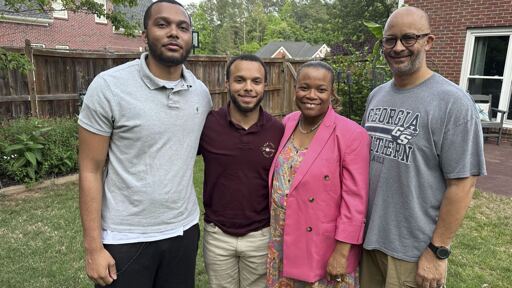The Southern accent, which has many variations, is fading in some areas of the South as people migrate to the region from other parts of the U.S. and around the world. A series of research papers published in December documented the diminishment of the regional accent among Black residents of the Atlanta area, white working-class people in the New Orleans area and people who grew up in Raleigh, North Carolina.
More than 5.8 million people have moved into the U.S. South so far in the 2020s, more than four times the combined total of the nation’s three other regions. Linguists don’t believe mass media has played a significant role in the language change, which tends to start in urban areas and radiate out to more rural places.
The classical white Southern accent in the Atlanta area and other parts of the urban South peaked with baby boomers born between 1946 and 1964 and then dropped off with Gen Xers born between 1965 and 1980 and subsequent generations, in large part because of the tremendous in-migration of people in the second half of the 20th century.
It has been replaced among the youngest speakers in the 21st century with a dialect that was first noticed in California in the late 1980s, according to recent research from linguists at the University of Georgia, Georgia Tech and Brigham Young University. That dialect, which also was detected in Canada, has become a pan-regional accent as it has spread to other parts of the U.S., including Boston, New York and Michigan, contributing to the diminishment of their regional accents.
In Raleigh, North Carolina, the trigger point in the decline of the Southern accent was the opening in 1959 of the Research Triangle Park, a sprawling complex of research and technology firms that attracted tens of thousands of highly educated workers from outside the South. White residents born after 1979, a generation after the Research Triangle’s establishment, typically don’t talk with a Southern accent, linguist Sean Lundergan wrote in a paper published in December.
Often, outsiders wrongly associate a Southern accent with a lack of education, and some younger people may be trying to distance themselves from that stereotype.
“Television erodes accents” - Stephen King.
I’ve heard people say online that their kids are sounding Australian from watching too much Bluey.
My accent and dialect change on a dime based on who I’m speaking with. I can – and do – go full-on Southern, but that’s generally in specific retail and call-center situations.
Otherwise, I use what’s likely the California dialect noted in the story, given my age and the fact that Californians love migrating out en masse, so Phoenix was convenient. As was Ashland, Ore. Californians arriving in Austin in spades is at this point a cliche.
i reckon so





